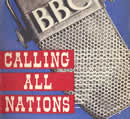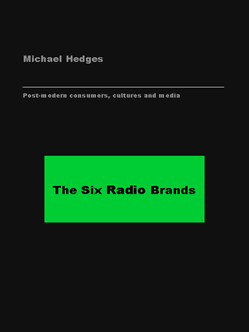ftm Radio Page - October 22, 2010
What Becomes Of BBC World Service Radio?
 As part of the UK government’s massive spending cuts announced Wednesday the BBC license fee of £145.50 (€160, $220) is going to remain frozen for the next six years, but the public broadcaster is losing its Foreign Office grant of some £272 million (€297 million, $412 million) that annually funds its World Service radio.
As part of the UK government’s massive spending cuts announced Wednesday the BBC license fee of £145.50 (€160, $220) is going to remain frozen for the next six years, but the public broadcaster is losing its Foreign Office grant of some £272 million (€297 million, $412 million) that annually funds its World Service radio.
Reality Meets The Cost Of Doing Business
 No business stays in business when the cost of doing business exceeds what the customers will pay. Accounting tricks notwithstanding, bottom line management is the norm. But unlike in the restaurant business, media operators can’t eat their mistakes.
No business stays in business when the cost of doing business exceeds what the customers will pay. Accounting tricks notwithstanding, bottom line management is the norm. But unlike in the restaurant business, media operators can’t eat their mistakes.
More digital radio licensed, planned
No jazz
Switzerland’s Department of Transportation, Energy and Communication (DETEC) authorized (October 18) three more channels for the DAB+ digital radio multiplex in the French-speaking region. The three succeeding applicants - Radio Rhône, Radio Fribourg/Freiburg and Soprodi Sàrl – will join others to be announced “in the next weeks,” said the DETEC statement. Specific details of the program offerings were not released. Two are existing broadcasters, which will offer “complimentary” programming. (See more on digital radio here)
DETEC’s statement also mentioned that the new digital operators would not be receiving funds from the radio/TV license fee. Radio Jazz International, which has operated as a web station for ten years, did not meet required financial conditions according to the statement.
The Czech Telecommunications Office (Cesky Telekomunikacni Urad (CTU) is accepting bids for regional digital radio licenses, said a statement (October 19). Minimum bids for the 13 regional multiplexes, not including Prague, are CZK1,000 (€40) per 10,000 population. Succeeding bidders will not be allowed to operate a digital channel in Prague. Those Czech broadcasters interested have until December 3rd.
Last year the CTU issued a tender for nationwide digital radio. Nobody bid. (JMH)
Radio person of the year named
A little humor goes a long way
The French radio broadcasting industry honored Philippe Bouvard, host of “Les Grosses Têtes” on RTL radio, as radio person of the year. The announcement was made at the close of the Le Radio expo (October 21).
Several stations were also honored; RTL radio, France Info, Radio FG, Contact and G Radio.
Known as a humorist and author, Bouvard, now in his eighties, has hosted “Les Grosse Têtes” for 34 years. He has a remarkable story of entering the media world while hiding from the Nazis during World War 2. “Les Grosse Têtes” is considered one of RTL’s most popular regular programs. (See more on media in France here)
RTL’s story may become the subject of a film documentary, says Le Parisien (October 20). The stations creative director Gaya Becaud is reportedly gathering historic footage. (JMH)
Radio Page - October 15, 2010
Radio Page - October 7, 2010
Radio Page - October 1, 2010
Radio Page - September 24, 2010
Radio Page - September 17, 2010
Radio Page - September 10, 2010
Radio Page - September 3, 2010
Radio Page - August 27, 2010
Recently added radio audience figures and references
- Croatia - Radio Audience (07/10/2010)
national survey, 2010 Q1 and Q3 - France - National Radio Audience (01/10/2010)
national channels, summer period 2008-2010 trend - Malta - Radio Audience (17/09/2010)
leading stations, audience share - Czech Republic - Radio Audience (19/08/2010)
Top stations, national survey, trend - Digital broadcasting associations (12/08/2010)
- UK - National Radio Audience (05/08/2010)
market share, trend, sectors - UK - London Radio Audience (05/08/2010)
market share, trend - UK - National Radio Audience (05/08/2010)
BBC/commercial 'gap' - Poland - National Radio Audience (29/07/2010)
national survey, market share, trend - Switzerland - French region Radio Audience (22/07/2010)
share, trend - Switzerland - Swiss-German region Radio Audience (22/07/2010)
share, trend - Switzerland - Italian region Radio Audience (22/07/2010)
share, trend - France - National Radio Audience (15/07/2010)
national channels, sectors, market share, reach/TSL - Germany - Radio Audience (14/07/2010)
leading stations, 2010 national survey, daily reach - Belgium - Radio Audience (01/07/2010)
Flemish region, market share, trend - Belgium - Radio Audience (01/07/2010)
French region, market share, trend - Belgium - Major Media (16/06/2010)
Flemish region, radio broadcasters, public, private
More Resources
Also see ftm Knowledge
Digital Radio - Possibilities and Probabilities – new
Digital radio has many platforms. From broadcast platforms to internet radio and rapidly emerging smartphone platforms, listeners and broadcasters have choices galore and decisions to make. Some regulators have made up their minds, others not, some hedging their bets. This ftm Knowledge file details the possibilities for digital broadcasting and the probabilities for success. Includes Resources 110 pages PDF (August 2010)
Europe's Radio - Western Europe
Opportunity meets tradition in Western Europe's radio broadcasting. Change has come fast and yet oh, so slowly. This ftm Knowledge file contains material and resources on public and private radio broadcasting in Austria, Belgium, France, Germany, Netherlands and Switzerland. 107 pages. PDF (June 2010)
Europe’s Radio – Eastern Europe
Eastern Europe’s radio writes new rules. In fact, most everything about radio in this region is new... and changes often. The ftm Knowledge file reports on Belarus, Bulgaria, Czech Republic, Hungary, Moldova, Poland, Ukraine, Romania, Russia and Slovakia. 65 pages PDF (February 2010)
Europe’s Radio – Northern Europe
Northern Europe’s radio has a very digital sound. And change is in the air. Economic challenges abound for both public and commercial broadcasters. The ftm Knowledge file reports on Denmark, Estonia, Finland, Iceland, Ireland, Latvia, Lithuania, Norway, Sweden and the UK. 72 pages PDF (December 2009)
Become an ftm Individual or Corporate Member and receive Knowledge files at no charge. JOIN HERE!
ftm Knowledge files are available to non-Members at €49 each. The charge to Individual Site Members is €15 each.

The Six Radio Brands is about the uniquely European development of radio brands. Competition among broadcasters - and certainly between the public and commercial sectors - gives radio in Europe a rich dynamic. As consumers become more media-literate and demand more attachment broadcasters find target markets illusive. 100 pages. 2004 Available at no charge to ftm Members, €49 for others. Email for more information |